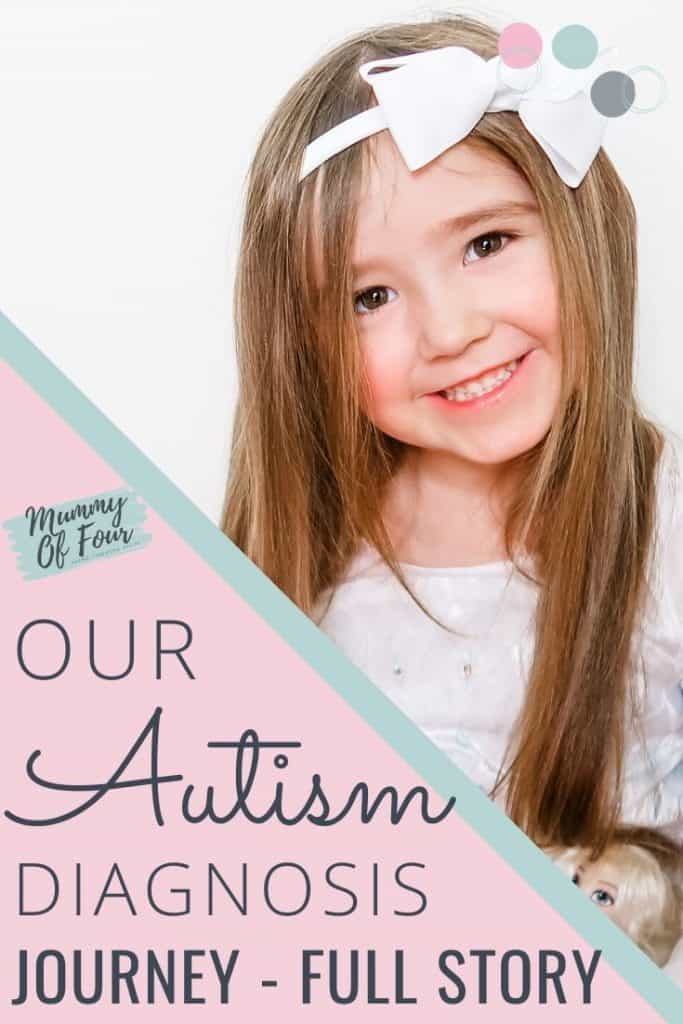The Adult Autism Diagnosis Journey: Challenges And Opportunities

Table of Contents
Navigating the Adult Autism Diagnosis Process
The process of receiving an adult autism diagnosis presents unique hurdles. Many individuals face significant challenges in accessing appropriate services and understanding the diagnostic criteria.
Difficulty in Accessing Diagnostic Services
- Limited Availability: Finding professionals experienced in assessing adults with autism can be extremely difficult. Many clinicians specialize in childhood autism, leaving a gap in services for adults.
- Long Wait Times: Wait times for appointments and assessments can be extensive, sometimes lasting months or even years, adding to the stress and uncertainty.
- High Costs: Diagnostic evaluations are often expensive, and insurance coverage may be inadequate or nonexistent, creating a financial barrier for many seeking an adult autism diagnosis.
- Lack of Understanding: Some clinicians may lack a deep understanding of the nuances of autism presentation in adults, leading to misdiagnosis or delayed diagnosis. Adult autism often presents differently than childhood autism, requiring specialized expertise.
- Geographical Limitations: Access to specialized services can be geographically limited, particularly in rural areas or regions with fewer resources dedicated to adult autism assessment.
Understanding the Diagnostic Criteria
The diagnostic criteria for Autism Spectrum Disorder (ASD) have evolved, and understanding the differences between childhood and adult presentations is crucial for accurate assessment.
- Adult vs. Childhood Presentations: Autism in adults may manifest differently than in children. Social challenges might present as difficulty maintaining relationships or navigating workplace dynamics, rather than difficulties forming friendships in childhood.
- Comprehensive Assessment: A thorough assessment considers the individual's entire life history, including developmental milestones, social interactions, and occupational experiences. This holistic approach is vital for an accurate adult autism diagnosis.
- Assessment Methods: Diagnostic evaluations typically involve standardized assessments alongside qualitative data gathering methods such as interviews and behavioral observations.
- Self-Report and Collateral Information: Self-report questionnaires and information from family members or friends provide valuable insights into the individual's experiences and challenges.
- Evolving Understanding of ASD: The understanding of ASD continues to evolve. The diagnostic criteria are constantly refined based on ongoing research, resulting in a more comprehensive and nuanced approach to assessment.
Preparing for the Diagnostic Interview
Preparing for the diagnostic interview can significantly reduce anxiety and improve the accuracy of the assessment.
- Gathering Information: Collecting relevant information about your developmental history, including early childhood experiences and educational milestones, is essential.
- Self-Reflection: Reflecting on your personal strengths, challenges, sensory sensitivities, and social interactions will help you articulate your experiences clearly during the assessment.
- Support System: Identify trusted individuals who can offer emotional support and help you process the experience. Having a support system can ease the stress of the process.
- Understanding the Process: Familiarize yourself with the assessment process to alleviate uncertainty and reduce anxiety. Knowing what to expect can make the experience less daunting.
- Managing Anxiety: Develop coping mechanisms for managing anxiety related to the assessment. Techniques like deep breathing or mindfulness can be helpful.
The Emotional Impact of an Adult Autism Diagnosis
Receiving an adult autism diagnosis can have a profound emotional impact, leading to a complex range of feelings.
Processing the Diagnosis
The experience of receiving an adult autism diagnosis is unique to each individual. It can evoke a range of emotions.
- Relief and Validation: Many experience relief and a sense of validation in understanding their challenges and behaviors. Finally having answers can be incredibly empowering.
- Grief and Loss: Others may grapple with feelings of grief and loss associated with missed opportunities, difficulties in relationships, or a sense of "what could have been."
- Self-Compassion and Acceptance: Self-compassion and acceptance are crucial for navigating the emotional complexities of the diagnosis. It’s vital to acknowledge challenges while celebrating strengths.
- Seeking Emotional Support: Seeking support from therapists, support groups, or loved ones is essential for processing the emotional impact of the diagnosis. These resources can provide crucial guidance and understanding.
- Balancing Challenges and Strengths: It's important to find a balance between acknowledging the challenges of autism and celebrating the unique strengths and talents that often accompany it.
Impact on Relationships and Social Interactions
An adult autism diagnosis can significantly impact relationships and social interactions, both positively and negatively.
- Improved Communication: Understanding autism can improve communication and understanding within families and friendships, fostering stronger bonds.
- Addressing Misunderstandings: The diagnosis provides an opportunity to address past misunderstandings and build more empathetic relationships based on mutual understanding.
- Navigating Social Situations: With increased self-awareness and the development of coping strategies, individuals can navigate social situations with more confidence.
- Building Healthy Relationships: Support services can help individuals build and maintain healthy relationships, teaching effective communication and social skills.
- Understanding Social Cues: Learning to recognize and interpret social cues can significantly improve social interactions and reduce misunderstandings.
Managing the Mental Health Implications
Individuals with autism often experience co-occurring mental health conditions, such as anxiety and depression.
- Co-occurring Conditions: A higher prevalence of anxiety, depression, and other mental health conditions is commonly observed in autistic adults.
- Seeking Treatment: Seeking appropriate treatment for these co-occurring conditions is crucial for overall well-being. A holistic approach is essential.
- Holistic Care: Addressing both autism and co-occurring conditions simultaneously is essential for comprehensive care. This might involve therapy, medication, or a combination of both.
- Coping Mechanisms: Developing effective coping mechanisms to manage stress and overwhelm is vital for maintaining mental health and overall well-being.
- Building Resilience: Building resilience and incorporating self-care strategies are critical for navigating the challenges associated with autism and co-occurring conditions.
Opportunities and Support Following an Adult Autism Diagnosis
Receiving an adult autism diagnosis opens doors to support services, self-advocacy, and personal growth.
Accessing Support Services and Resources
A wide range of support services and resources are available to help individuals navigate life with autism.
- Support Groups and Communities: Connecting with support groups and online communities provides a sense of belonging and shared experience.
- Specialized Therapists: Therapists specializing in adult autism can provide tailored support and guidance.
- Therapy Options: Occupational therapy, speech therapy, and other therapies can address specific challenges and improve daily functioning.
- Assistive Technologies: Assistive technologies and strategies can support daily living and enhance independence.
- Job Coaching and Career Counseling: Job coaching and career counseling services can help individuals find fulfilling employment.
Self-Advocacy and Empowerment
Self-advocacy plays a crucial role in empowering individuals with autism to navigate their lives effectively.
- Communication Skills: Developing effective communication skills is essential for advocating for your needs and accessing appropriate resources.
- Legal Rights: Understanding your legal rights and accessing appropriate accommodations in education, employment, and other areas is critical.
- Sharing Diagnosis: Building confidence in sharing your autism diagnosis with others can foster understanding and support.
- Achieving Goals: Utilizing your strengths and skills to achieve personal and professional goals is crucial for self-empowerment.
- Becoming a Role Model: Becoming a role model and advocate for others on the autism spectrum can be incredibly rewarding.
Developing a Personalized Support Plan
A personalized support plan is essential for addressing specific needs and goals.
- Personalized Approach: Create a plan tailored to your unique challenges, strengths, and aspirations.
- Collaborative Approach: Work collaboratively with professionals, support systems, and family members to build a strong support network.
- Regular Review: Regularly review and adjust the plan to accommodate evolving needs and goals.
- Self-Management Strategies: Developing self-awareness and effective self-management strategies is crucial for successful navigation of daily life.
- Focusing on Strengths: Focus on your strengths and talents, building upon your personal assets to achieve your goals.
Conclusion
The journey towards an adult autism diagnosis presents unique challenges, from navigating the diagnostic process to managing the emotional impact. However, receiving a diagnosis also unlocks significant opportunities for self-understanding, access to support, and personal growth. By understanding the process, seeking appropriate support, and embracing self-advocacy, individuals can navigate this journey and thrive. Don't hesitate to seek information and support regarding your own Adult Autism Diagnosis. Start your journey today by connecting with local resources or online support communities. Remember, understanding your autism is the first step towards a more fulfilling and empowered life. Seeking an adult autism assessment can be transformative.

Featured Posts
-
 Current San Diego Rain Totals Detailed Data From Cbs 8 Com
May 30, 2025
Current San Diego Rain Totals Detailed Data From Cbs 8 Com
May 30, 2025 -
 Oasis Concert Tickets An Analysis Of Ticketmasters Practices And Consumer Protection Laws
May 30, 2025
Oasis Concert Tickets An Analysis Of Ticketmasters Practices And Consumer Protection Laws
May 30, 2025 -
 Misteri Kawasaki Z H2 Mengapa Motor 197 Hp Ini Absen Di Indonesia
May 30, 2025
Misteri Kawasaki Z H2 Mengapa Motor 197 Hp Ini Absen Di Indonesia
May 30, 2025 -
 Is Bruno Fernandes Headed To Al Hilal Transfer Update
May 30, 2025
Is Bruno Fernandes Headed To Al Hilal Transfer Update
May 30, 2025 -
 Kawasaki Ninja Price Drop R45 000 Savings
May 30, 2025
Kawasaki Ninja Price Drop R45 000 Savings
May 30, 2025
